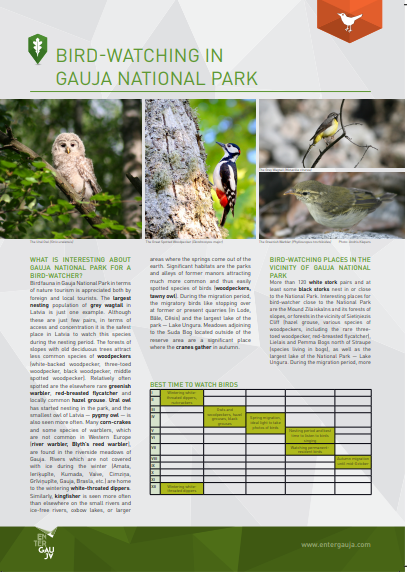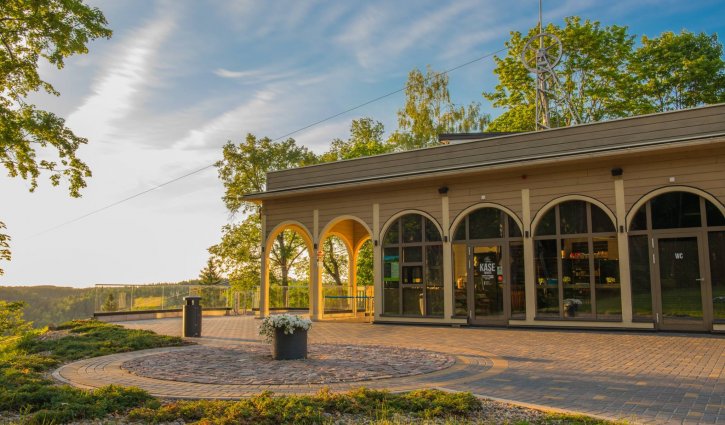
What is interesting about Gauja National Park for a bird-watcher?
Bird fauna in Gauja National Park in terms of nature tourism is appreciated both by foreign and local tourists. The largest nesting population of grey wagtail in Latvia is just one example. Although these are just few pairs, in terms of access and concentration it is the safest place in Latvia to watch this species during the nesting period. The forests of slopes with old deciduous trees attract less common species of woodpeckers (White-backed woodpecker, Three-toed woodpecker, Black woodpecker, Middle spotted woodpecker). Relatively often spotted are the elsewhere rare Greenish warbler, Red-breasted flycatcher and locally common Hazel grouse. Ural owl has started nesting in the park, and the smallest owl of Latvia — Pygmy owl — is also seen more often. Many corn-crakes and some species of warblers, which are not common in Western Europe (River warbler, Blyth’s reed warbler), are found in the riverside meadows of Gauja. Rivers which are not covered with ice during the winter (Amata, Ieriķupīte, Kumada, Vaive, Cimziņa, Grīviņupīte, Gauja, Brasla, etc.) are home to the wintering white-throated dippers. Similarly, kingfisher is seen more often than elsewhere on the small rivers and ice-free rivers, oxbow lakes, or larger areas where the springs come out of the earth. Significant habitats are the parks and alleys of former manors attracting much more common and thus easily spotted species of birds (woodpeckers, tawny owl). During the migration period, the migratory birds like stopping over at former or present quarries (in Lode, Bāle, Cēsis) and the largest lake of the park — Lake Ungura. Meadows adjoining to the Suda Bog located outside of the reserve area are a significant place where the cranes gather in autumn.












